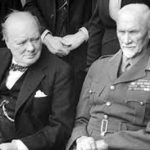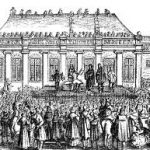At the same time as Felipe IV reigned in very grand Spain, and Louis XIV in very rich France, the ‘Sun King’s’ cousin Charles II was living a double life in England. He had regained the throne in The Restoration, had punished a few of those who had signed the death warrant for his father’s execution in 1649, and was now suffering a certain amount of stick from his wretched parliament. More intelligent, tactful and resourceful than Charles I had ever been, merry Charles II knew how to deal with irritating Members of Parliament. When they became irksome, he simply closed Parliament and ruled with a cabal of his chosen ministers instead. And the MPs let him.
With England’s present monarch approaching her nineties, and an elderly Charles III looming over us, I am inspired to muse on Charles II’s double life.
Charles was married to a pretty Portuguese princess by name Katherine of Braganza, but she was barren, which was not her fault, but rather beggared the question of sons (or daughters) and heirs to the throne. We are told that Charles, on his death bed, excused himself to his grieving courtiers for his ‘unconscionable time a’dying’. But he also spent an unconscionable amount of time, during his reign, a’dallying with the ladies; duchesses, orange sellers, actresses or simply women who wanted a black-haired, bushy-eyebrowed king of six-foot-four inches, in their bed. Charles was always willing to oblige.
The king does not appear to have practised any kind of birth control. No journal kept by any of his mistresses mentions such a thing. He fathered a whole quiverful of children by them, and obtained a great deal of happiness with them all. Only once did he staunchly refuse to recognise paternity, dishonestly claimed by one of these female royal favourites.
Charles II fathered at least twelve bastards; each was recognised. One of the wits of the period, Buckingham, observed that ‘a King is supposed to be the father of his people, and Charles was certainly the father of many of them!’ The children we know about were a result of his relations with seven women: Lucy Walter, Elizabeth Killigrew, Catharine Pegge, Barbara Villiers (who produced five), Nell Gwynn (two), Moll Davis, and the aristocrat Louis de Kéroüalle. There were doubtless many more ladies, but Charles was never a rich king. Paternity for a sovereign was (and is) a serious matter. That said, once he had recognised a child as his, Charles honoured paternal obligations dutifully and with affection.
The Stuarts for all their faults made good fathers. An excellent relation existed between the two Charles, father and son. This gives more credence to the good character of Charles II, because his revenge for the murder of his father by Parliament and Cromwell could have much worse. Cromwell, already dead, was hung up in chains; his son was allowed to live peacefully in another country with a state pension. Certain signers of the death warrant were executed, but by no means all. Others kings (Henrys VII and VIII and Ivan the Terrible of Russia spring to mind), would doubtless have enjoyed a bloodbath. Charles did not.
In the third quarter of the seventeenth century, due to ‘reforms’ forced upon the House of Lords, one of the protests made with numbing regularity was that many peerages derived from the loves of Charles II. Andrew Marvell marvellously reports:
‘The Misses take place, each advanced to be Duchess/ With pomp great as Queens in their coach and six horses/ Their bastards made Dukes, Earls, Viscounts and Lords/With all the title that Honour affords. . .’
England hardly has a House of Lords now, thanks to enterprising Mr Tony Blair (or his wife), and it is worth remembering what happened to most of the King’s brood. Six sons received nine dukedoms: Monmouth (q.v.) and Buccleuch for Lucy Walter’s son (extraordinarily handsome, extraordinarily stupid – executed for rebelling against his father’s brother James II); Southampton, Northumberland and Grafton (and Cleveland after her death) for Barbara Villiers’ three babies; St. Albans for Nell Gwynn’s surviving son; Richmond and Lennox for the grand Louise’s only child.
The King’s best-known bastard was Monmouth, because of the Monmouth Rebellion (q.v.). He married Anne, Duchesss of Buccleuch in her own right, which led to the couple being made Duke and Duchess of Buccleuch. After Monmouth’s fall from grace and subsequent execution for fighting against his uncle (the young duke thought he should be King, not James), Duchess Anne was allowed to retain her Scottish title.
The daughters were not neglected; most were married off to some lord or other, and later rose rapidly in Society. Mary Tudor, daughter of Moll Davis the actress/seamstress, was given the rank and precedence of a duke’s daughter. Two sons made political marriages with the daughters of those politicians who made life so exasperating for Charles. Henry Duke of Grafton married Arlington’s daughter; Charles Earl of Plymouth married Danby’s daughter.
Most of these titles exist today, though as hereditaries they are no longer permitted to take their part in the governance of Great Britain. Not one of the bastards equalled the exceptional calibre of their father. The extravagantly good-looking Monmouth was a bundle of trouble, and fearless, though that virtue may be excused by his lack of brains. Few of them had the courage, wit and patience of their various mothers, none of whom, it should be said, seemed greatly to dislike other members of the royal team. The poor Queen quite liked some of the mistresses too, but this may be because she was always desperately in love with her husband, and needed to see him happy. She was not seen to be amused by Louise de Kéröualle
In this respect there is a marked difference between Charles and his cousin Louis of France, where poison, the midnight dagger, accidents and false arrests were the order of the day between the king’s bedmates, of whom there were at least as many as thrived in England.
The children of Charles II, none of whom were his wife’s, were brought up by their mamas with only one hard and fast rule, to please the father, who had suffered a very great deal in that direction – Never Mention Scotland.









Leave A Comment